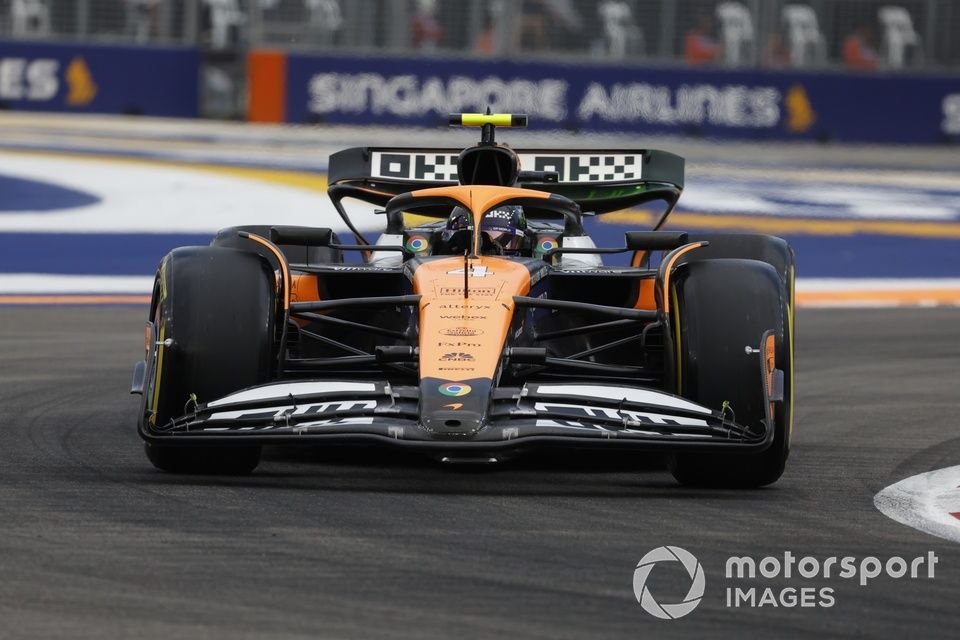
McLaren is to to modify its rear wing design after being asked by the FIA in the wake of the controversy over its 'mini-DRS'.
With rival teams questioning the legality of the McLaren rear wing after the Azerbaijan Grand Prix, as the upper element appeared to rotate back to open up the slot gap, the FIA has been carefully looking at its design.
Although there are no doubts that the wing fully complies with the current regulations, and passes all the static tests, the FIA has requested for changes to be made.
While McLaren will still be allowed to use the exact low-drag wing that it raced in Baku on the type of tracks it is designed for, it has been told that it needs to make alternations that will prevent the upper element flexing in the manner it has.
A McLaren statement on the topic read: "Whilst our Baku rear wing complies with the regulations and passes all FIA deflection tests, McLaren have proactively offered to make some minor adjustments to the wing following our conversations with the FIA.
"We would also expect the FIA to have similar conversations with other teams in relation to the compliance of their rear wings."
Although the demands of the FIA regulations purely relate to wings passing static load tests, there are other aspects to the wing behaviour that count in terms of legality.
These have been made clear in a long-standing technical directive to teams. It states that, while it is natural for parts to flex when exposed to increased aero load, the FIA does not deem components that are deliberately designed to move in a specific manner.

In TD34, the FIA states that it does not consider legal: “designs whose structural characteristics are altered by secondary parameters, so as to produce (whilst running at the track) a different deflection characteristic than when stationary during the FIA checks. Examples of secondary parameters could be temperature, aerodynamic load etc.”
The FIA’s decision to ask McLaren to modify its rear wing came in the wake of some unease from rival teams over what the design was done.
While the FIA had previously brushed away team concerns about flexible front wings, it had left the door for taking action about what was happening at the rear.
This will ease concerns from teams that, if the McLaren design was given the all-clear, then it could open an arms race for teams to try to further exploit the regulations.
One team boss told Autosport: “Aero elasticity has been a factor for many, many years now, and even if a wing passes the FIA test the regulations remain very clear - the component cannot be designed to flex.
“We rely on the FIA to say, okay, what are the boundaries of that? Of course, everything will flex to a certain degree, but what is acceptable and what is not?

“We're starting to see extremities be exploited again, and I think it's down to the FIA to decide, is that okay, in which case everybody will pile in or, as per the regulation, the way it's written, does that comply?
“There is a large scatter of who's doing what now, obviously with a lot of interest in the McLaren rear wing after Baku and there is performance in it – of course there is.
“That is why everyone is chasing it. But it's just knowing what is reasonable, and what's taking the piss.”







